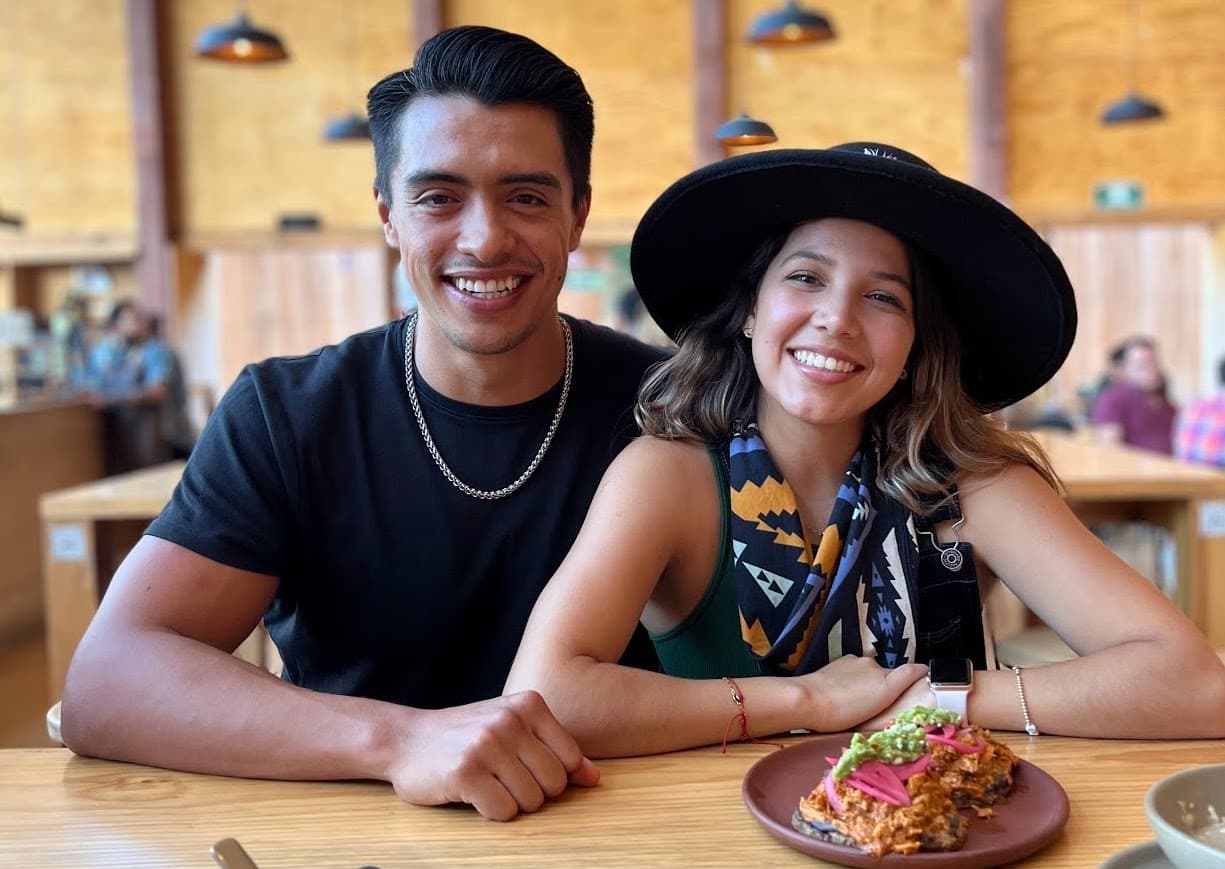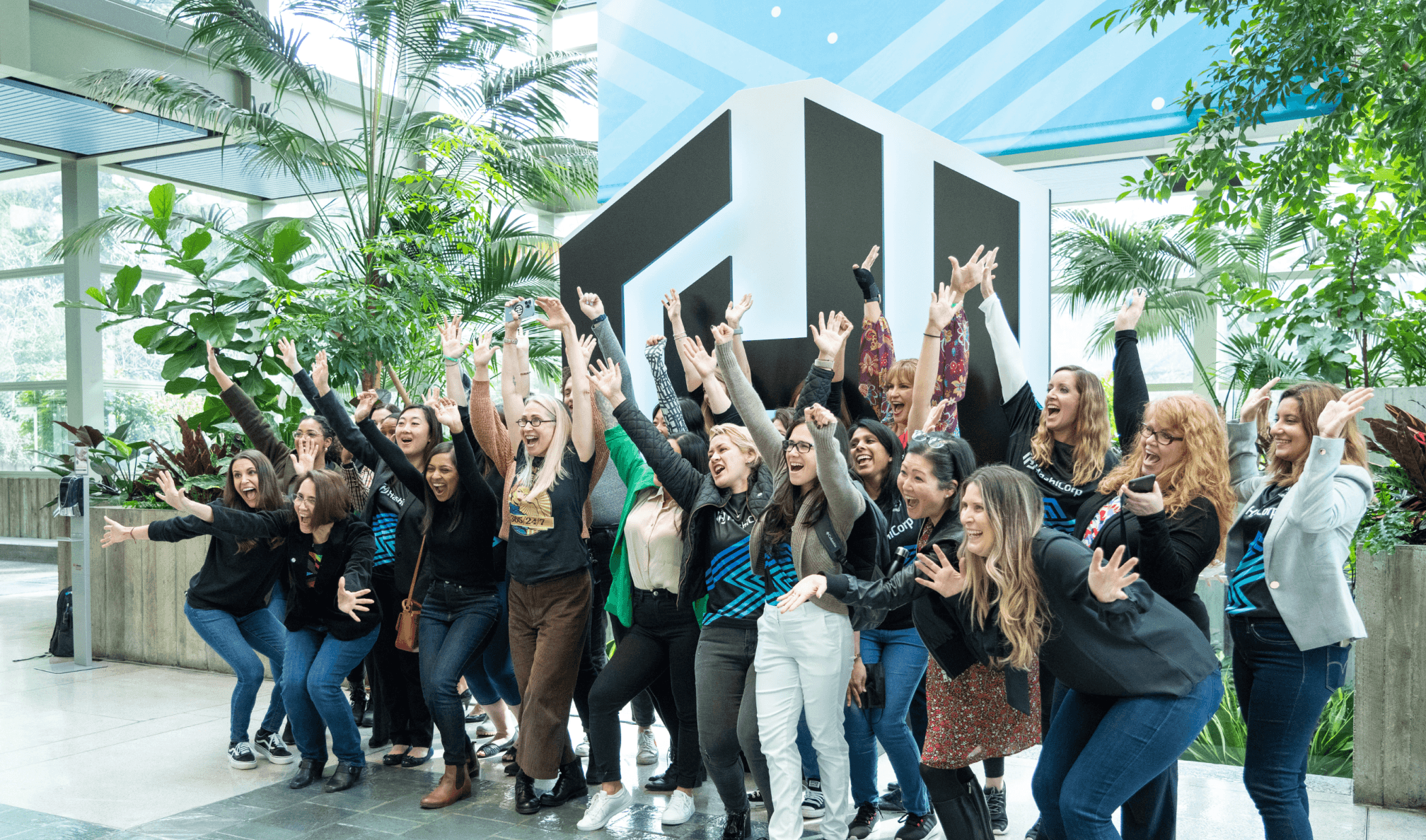How Two HashiCorp Employees Marked Latinx & Hispanic Heritage Month
Karla De La Garza and Abraham Martinez, from HashiCorp’s Unidos Employee Resource Group, share their experiences in Mexico during Latinx & Hispanic Heritage Month.
In honor of Latinx & Hispanic Heritage Month (Sept. 15 - Oct. 15) HashiCorp’s Karla De La Garza, Executive Assistant to the Chief People Officer, and Abraham Martinez, Senior Technical Recruiter, decided to work remotely in Mexico. They are both members of the Unidos HashiCorp Employee Resource Group (ERG), which aims to serve as a resource for Hispanic and Latinx employees by encouraging an inclusive and intersectional culture, providing opportunities for connection and development, and supporting HashiCorp’s inclusion and diversity goals.
As Latinx & Hispanic Heritage Month draws to a close, we asked Karla and Abe to reflect on their journeys through Mexico connecting with their roots and exploring new sides of themselves while still performing their day jobs at HashiCorp. Here’s what they had to say:

What was your most memorable moment during Hispanic Heritage month?
Abraham Martinez: The most memorable moment for me was walking through my day-to-day activities here in Queretaro, Mexico, for all of the company to see on the HashiCorp Instagram page. Usually I am on the other end of the screen, learning about a new location or new city from a video of someone narrating their experience. This time it was my turn narrating, it was quite a strange experience. Looking back, I enjoyed it because it wasn’t just about the flashy aspects of Mexico but the small details, the routine aspects of waking up, working, going to the gym, and so forth. It made me feel more connected as I was not just showing a vacation but how I have been living here. It was also a great example of how working remotely allowed me to immerse myself in another country all while still being able to work.
Karla De La Garza: For me, Mexican Independence Day (Sept. 16) was the most memorable moment during Hispanic Heritage Month. There is some type of power you gain when you are surrounded by people like you, and knowing your ancestors were able to fight for your freedom. My family and I drove to Queretaro listening to a podcast about how Mexican Independence came to be. It was a really wholesome experience listening to the history while watching the beautiful Mexican landscape. And knowing I was going to meet up with Abe and have a buddy who was going through similar experiences was reassuring.
Was there a particular dish or restaurant that you kept going back to eat during Hispanic Heritage Month?
Abe: I eat a lot so this is a very difficult question to answer! The one meal I had several times comes from a local beer garden in Queretaro called Hércules, where Karla and I started our planning for the heritage month. The dish is beer-braised Chamorro (beef shank); this meat literally falls off the bone and they include freshly made tortillas with guacamole and pickled jalapenos.
Karla: This is also a difficult one for me! We ate at so many places and restaurants. I would have to say that it wasn’t a dish for me but a drink. Every week we would make a batch of Agua de Jamaica. It’s customary for each Mexican household to have their own drinks of choice. For me, its opening the fridge and having fresh water there. There is something that connects you back to traditional food and comfort.
How did the past month allow you to reconnect with your roots? What did you discover about yourself?
Abe: The self identity I had struggled to ‘find’ throughout my entire life came in a surprisingly simple realization. I have had this conflict of always being in the middle: Mexican by blood but born in the US. While in the US I was Mexican and not American in a traditional sense, and while in Mexico I was American and not a true Mexican native. Traveling, speaking with others, and hearing similar stories brought inner peace and the realization that I get to decide how I want to define myself rather than feeling pressured by how others want to fit me in a box.
Karla: When you live in the United States you get used to letting society outline where you belong and what type of space you are meant to take up. As an immigrant, I had always tried to reject the social labels that had been attached to me. When I was back home in Mexico there was a feeling at the beginning that I was more Americanized than the rest of my family. What I quickly realized was that was an internal narrative that was given to me, and the longer that I was there the easier it became to divorce myself from it. I really like that I am not one thing — and that I can feel like myself in multiple languages. Identity is fluid and the less I try to define myself the easier it becomes to enjoy myself in the moment.
While celebrating Latinx Hispanic Heritage Month at HashiCorp, what moment have you been most proud of while at HashiCorp?
Abe: The baby steps towards progress we have made. The first year of Unidos it was simply having an ERG for people to feel a sense of belonging within the company. This year it was about not only increasing the representation but ingraining these practices to create ongoing space for others. It’s important to remember that progress gets built one step at a time. Creating the ERG was one small step, celebrating Hispanic Heritage Month every year is another step, providing events and programming for others to relate to are micro changes we make as we work toward the larger goals.
Karla: I’m proud of our community at HashiCorp for building and holding space to celebrate us. Last year Abe and I worked together to see if the Unidos ERG was feasible and if there were people who could help us build it. This year we were more open to having vulnerable conversations about how we see ourselves, our work, and how we can continue to motivate and empower each other. I feel like we not only have built something important but we are gaining traction.
Do you have any tips for people interested in working remotely in Mexico?
Abe: Don't be intimidated, there are many large cities that you can travel to and get your feet wet before you dive into the country's smaller cities and pueblos. Cities such as Guadalajara or Mexico City are great options because you don't have to have perfect Spanish to navigate and there is an endless amount of sightseeing, food, and entertainment options.
Karla: I’m a very anxious person, the “what-ifs” really get me. But I would say “do it”, even if you are nervous. Nervousness is just excitement masked. If there is an experience you are nervous about, that should be an indicator to do it. You might not trust the environment, or the people around you. But you can always trust yourself.
What advice would you give to someone who wants to reconnect with their heritage in their “mother country”?
Abe: No pressure! Being able to relate and learn about your heritage is an ongoing endeavor, I don't think I will ever reach a point where I think I am done. Much of reconnecting for me has happened in those quiet spaces: walking to the grocery store, sitting outside with my partner. These times of contemplation are what has had the most impact contrary to what most of us think.
Karla: For me, there is always a bigger question underlying the desire of reconnection. What is it about your heritage that makes you feel disconnected? Is it the language? The history? The day-to-day minutia living in a place and a space? Wondering who you could have been in these environments? When did you start to feel disconnected? There is a lot that lives underneath this journey. I would deeply encourage those who are wondering to contemplate the disconnect. Sometimes the answer is in the question we are not asking.
Sign up for the latest HashiCorp news
More blog posts like this one

Ace your Terraform Professional exam: 5 tips from certified pros
Three HashiCorp Certified: Terraform Authoring & Ops pros share their advice for preparing for and completing the certification exam.

From DevOps engineer to solutions engineer: Bridging the gap between technology and business
Read about one engineer’s lessons learned from their days as an application and DevOps engineer transitioning to becoming a solutions engineer at HashiCorp.

The 2025 HashiCorp Principle Awards
Meet the winners and runners up for HashiCorp's nine core Principle Awards.